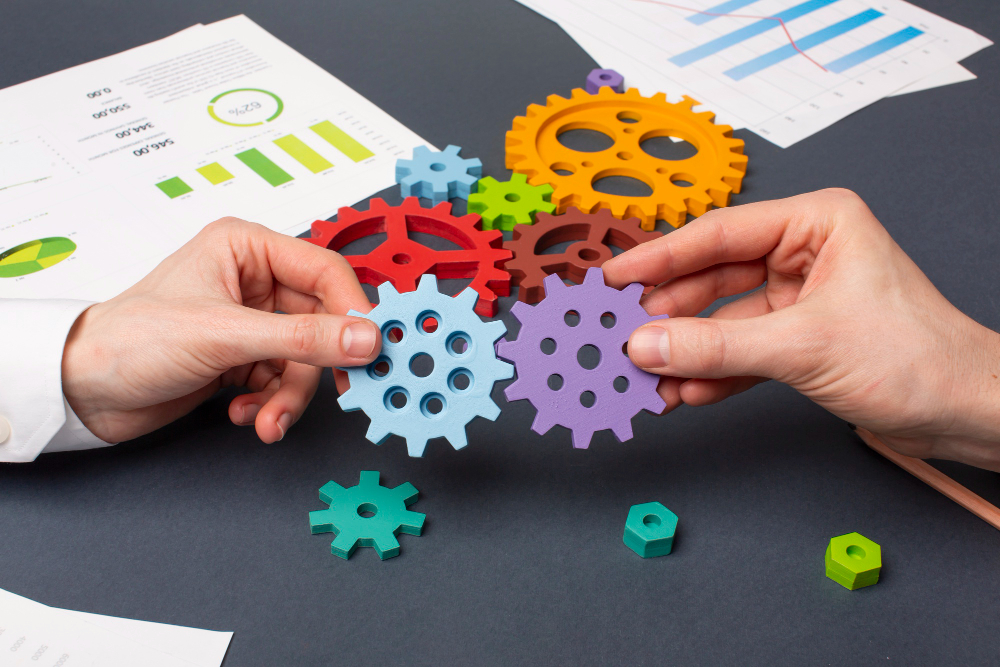SERVICES

Impactful Presentation Skills
What makes the difference between another dull presentation and one that engages your audience from the very beginning? Putting yourself in your audience’s shoes, of course!! Just think, what’s in it for them?
Participants will learn to:
- engage participants immediately
- develop a clear central message and convey benefits up front
- structure the presentation for greater impact
- use visuals effectively
- build a persuasive business case
- project confidence, credibility and enthusiasm
- manage questions and interruptions
Participants will benefit from real time feedback from instructor and peers, implement changes, practice, and perform!

Cross-Cultural Skills Development
Boundaries no longer exist in our business environment. Whether working face to face or virtually, our teams have become more diverse as our world shrinks. Cross-cultural training helps us prepare for the challenges of interpreting cultural behavior and avoid knee-jerk reactions.
Workshops can be developed for global teams working cross-culturally in order to understand each other or for expatriates and families moving to a new destination.
Participants learn to:
- be aware of their own cultural filters and values
- differentiate between cultural dimensions
- learn how to navigate and style switch with different styles
- minimize culture shock if moving abroad
- work with culturally diverse teams to maximize innovative potential and minimize cultural noise
- Tool used: The Cultural Orientations Indicator (COI) provides snapshot of cultural preferences and provides comparison to other countries.

Conflict Management
Conflict is inevitable in our relationships. Rather than fear or avoid it, learning how to manage it effectively will help strengthen our relationships and promote innovative ways of thinking.
Participants learn to:
- focus on healthy interpersonal skills as part of internal culture, cascading to external benefits for company productivity
- learn how to identify behavioral motivators
- identify, chose and control behavior and results
- improve understanding and appreciation for colleagues
- improve group and team integration as well as performance
- Tools used: SDI, DiSC or EQ.

Successful Client Interaction
Service excellence starts at home. The interactions we engage in with our internal clients contribute towards a service culture which is reflected externally. The program focuses on behaviors that help foster the culture of service that creates consistency throughout the organization.
Participants will learn to:
- self-diagnose the quality of their service
- recognize areas of opportunity for improvement
- develop tools for exploratory understanding
- take accountability and managing expectations
- learn how to say no while protecting relationships
- use assertive communication and empathy

Effective Communications Skills
How do we get our message across without causing offense or being misunderstood? How do we promote a harmonious and effective workplace?
Communication is the key, but getting it right is not always easy.
Participants will learn to:
- Be more convincing, confident and persuasive with colleagues, service providers and clients.
- Learn about non-verbal communication, improve on the verbal expression, identify preferred style and adapt to other styles as needed.
- Create a connection, improve listening skills, provide and receive feedback and handle conflict.
- The DiSC tool can be used, which provides insight on behavioral preferences and permits style switching in order to better approach counterparts.

Leadership Coaching and Development
Through coaching, leaders can focus on reaching specific performance and professional development objectives as well as advance the competencies necessary to inspire a more robust followership.
The client and coach use a process of inquiry and discovery, learn how to motivate or influence people from different national or corporate cultures, understand different communication styles and adjust situationally, using feedback correctly as a recognition or development tool, learning how to develop a coaching approach to leadership, as well as inspiring and motivating teams.
We offer both individual coaching for leaders or courses on how leaders can use coaching techniques for developmental purposes within their own teams.
Assessment used may include DiSC or Driving Forces, SDI, 360, Emotional Intelligence or COI® assessment tools.

Teambuilding for Collaboration
Although working remotely can be very convenient, it can leave a gap in the relationship building process of a team. New members may come onboard, and teams are sometimes working with a team they have never met or don’t interact with on a personal level, which in turn can limit the communication, trust, and therefore, productivity of a team. Sometimes in-person teams also need a bit of a boost to create goodwill and collaboration.
Participants will engage in a series of activities which will foster reflection and application. The activities will serve as analogies for comparisons to real situations, including challenges pertaining to setting and achieving objectives, developing strategies, obtaining consensus, and communicating effectively.
Objectives include:
- promoting a sense of unity and solidarity among team members
- strengthening communication skills
- providing a reset and refresh for increased motivation
- reinforce a sense of accountability and empowerment
- generating trust for the achievement of results

Stress Management and Work-Life Balance
According to research, the consequences of prolonged chronic stress can be severe. These consequences can affect people at a personal level including burnout and loss of meaning in work to a personal level, including affecting relationships or even depression. This workshop focuses on developing skills that help participants manage time, manage stress, and achieve improved work/life balance.
Participants will learn to:
- Identify sources of stress
- Apply stress elimination techniques
- Understand the nervous system and emotional intelligence
- Develop strategies for balancing priorities
- Establish routines and patterns for increased efficiency
Tools used: EQ

Influencing and Negotiation Skills
The most effective negotiators are those that know how to ask the right questions and listen. Influencing requires a delicate balance of exploring and proposing. Whether it’s pitching an idea, making a presentation or negotiating with colleagues or clients, it’s important to consider the needs of the other party.
These courses will take into account:
- The essence of negotiation, the key principles, the process and techniques, tactics and behaviors and styles that may be important in different types of negotiations.
- Various cases, so that participants can practice, observe, review and provide feedback to each other on their effectiveness.
- Tools used: SDI or DiSC

Time Management
Time is something we may wish we had more of, but considering that it’s a finite resource for us, how do we make the most of the time we have?
Participants will learn to:
- avoid getting stuck in the “putting out the fires” mode
- do a time-analysis, learn about prioritizing and distinguishing between urgent and important matters
- discover practical ways to optimize time in order to facilitate work and achieve more quality time every day
- avoid procrastination or distractions
- be an effective facilitator by planning and structuring meetings effectively

Vision and Empowerment for Leaders
What makes a good leader? When people are asked about a leader that inspired them, they tend to recall stories about their focus, integrity, respect, and energy. FIRE! This program includes a series of topics that will foster trust and followership and help gain a holistic insight into the individual, team, and organization.
The program is an ongoing workshop which can be custom built with different learning blocks and supplemented with individual coaching sessions to reinforce learning and practice. Role-play and real time group coaching will reinforce the learning. The workshop can be facilitated both in person or virtually or a combination of both.
Participants will learn to:
- develop clarity of vision
- understand self: strengths and overdone strengths
- adjust leadership styles situationally
- manage conflict
- use coaching style leadership
- motivate and build relationships in their teams
- use storytelling as a motivational tool
- provide effective feedback and recognition
- tackle difficult conversations successfully
- manage time and know how and when to delegate
- model desired behavior
Tools used: SDI, DISC, 360, or EQ

Communicating and Managing Change
The pace that surrounds us keeps accelerating at a dizzying rate, which makes change the new constant. When people start experiencing “change fatigue”, it can have an impact on motivation and productivity. This workshop is designed to help leaders promote a sense of grounding and resiliency within their teams while navigating fast paced change in the environment.
Participants will learn to:
- perceive change as an opportunity
- model behaviors for positive impact and influence
- learn how to develop a message in a persuasive manner
- learn how to become an agent of change
- generate empathy in a proposal
- develop a structured, universal narrative which gives strength to the message
- gain skills to improve presentations, interviews, and pitches